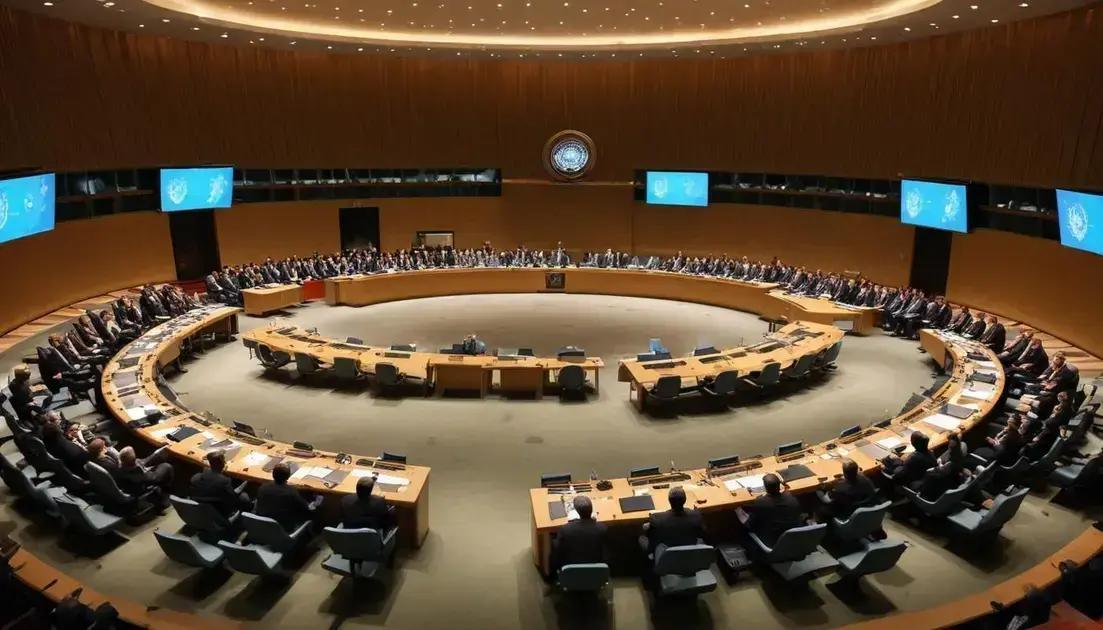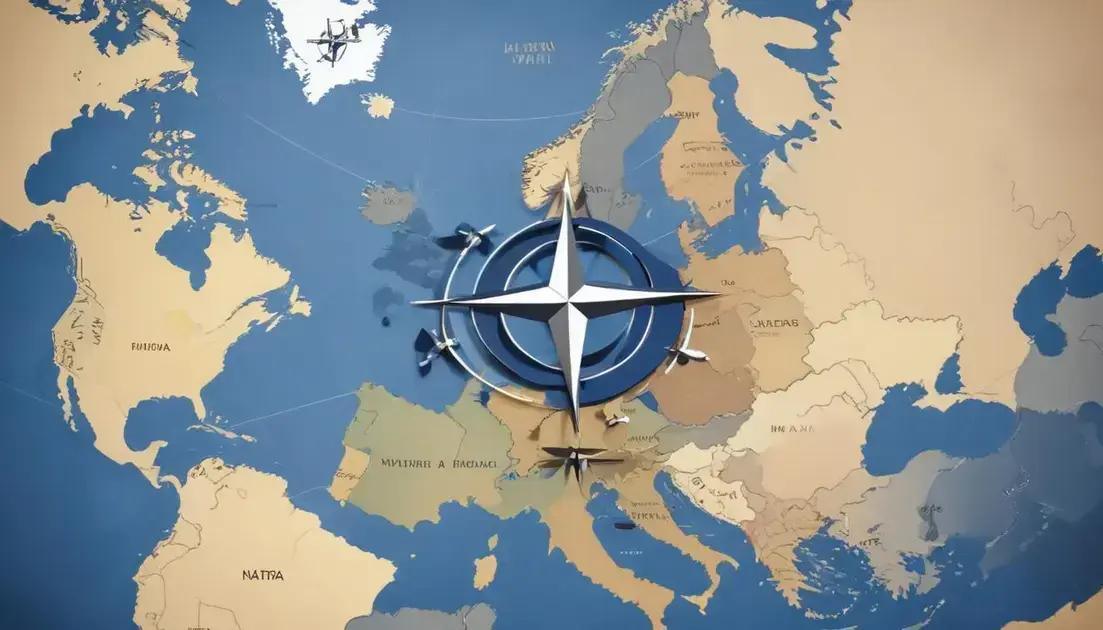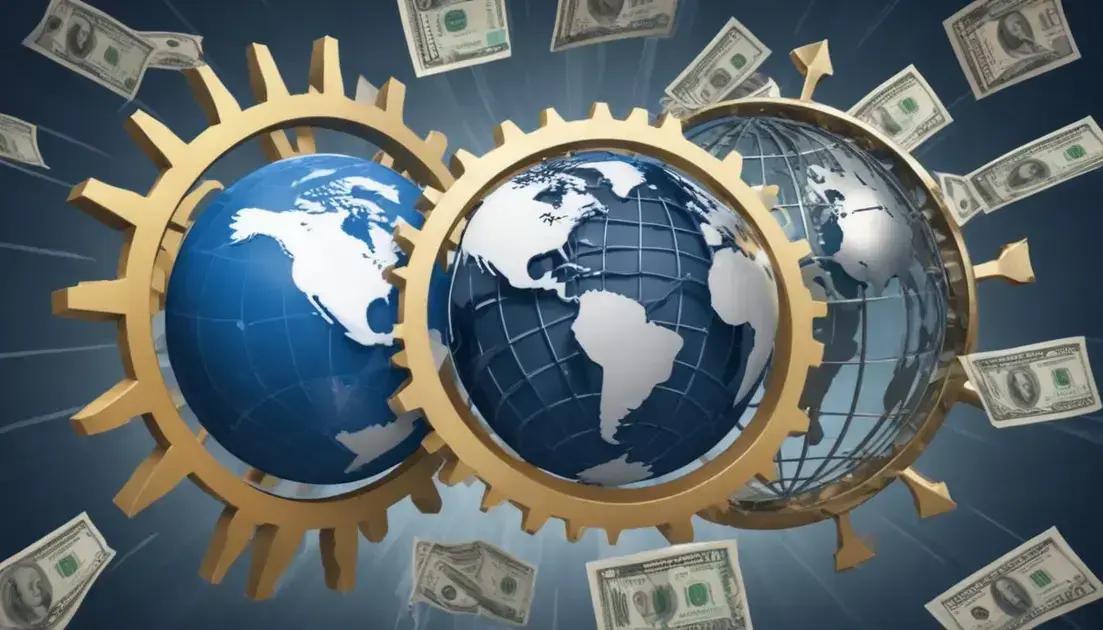
The Birth of the Third World and the New UN
The emergence of the Third World and emerging nations is reshaping global politics and economics, as these countries gain stronger voices and influence in international discussions. Their participation is crucial for addressing global challenges like climate change and poverty. Superpowers must adapt to these changes, fostering collaboration and partnerships to ensure stability and progress in a more equitable world. The role of organizations like the UN is vital in supporting these nations’ development and interests, ultimately creating a balanced global landscape.
Third World countries have long struggled for recognition on the global stage. As a new era dawns, these nations are striving to claim their own voice amidst superpowers. What does this mean for the future of international relations? Let’s dive in!
The emergence of the Third World
The term Third World refers to countries that weren’t aligned with NATO or the Communist Bloc during the Cold War. Today, it signifies nations that are developing economically. The emergence of these countries is reshaping global politics.
Characteristics of Third World Countries
These countries share common traits: lower income levels, high poverty rates, and limited access to education. They often face challenges in health care and infrastructure. Yet, they are rich in culture and potential.
Economic Growth and Global Impact
Many Third World nations are witnessing rapid economic growth. They are becoming key players in international markets. This change influences global trade and investment patterns.
Case Studies of Success
Look at nations like India and Brazil. They have taken giant steps in technology and manufacturing. Their growth demonstrates that emerging markets can drive innovation, attracting businesses from around the world.
The Role of International Organizations
Organizations such as the UN play a crucial role in supporting the development of Third World countries. They provide resources, training, and guidance to help elevate living standards and support sustainable growth.
As these nations emerge, their voices become central to discussions on global issues, like climate change and poverty. This evolution challenges established powers to adapt and collaborate.
Impact on global politics
The impact on global politics from the emergence of Third World nations is significant. These countries are increasingly asserting their influence on the world stage. Their growth changes how decisions are made internationally.
New Alliances and Partnerships
As Third World nations grow, they form new alliances. These partnerships can challenge existing powers. They create a more balanced global landscape, impacting trade and security.
Shifting Economic Powers
More countries are joining the global market. This shift can lead to economic changes everywhere. Emerging markets often attract foreign investment, boosting their economies.
Climate Change and International Policies
Third World countries also have a voice in climate discussions. They advocate for policies that address their unique needs and challenges. Their input is essential for creating effective global solutions.
Challenges to Superpowers
Superpowers must pay attention to these emerging voices. This rise can lead to tensions as countries adjust to new power dynamics. Collaboration and understanding are crucial for maintaining global stability.
The influence of Third World nations is reshaping politics. Their perspectives and interests are now critical in international conversations.
The role of the UN in a changing world
The role of the UN in a changing world is more important than ever. As global dynamics shift, the UN adapts to support emerging nations. This helps ensure stability and peace worldwide.
Supporting Development
The UN provides resources and expertise to Third World countries. It helps them develop infrastructure and improve education. This support is crucial for their growth and integration into the global economy.
Facilitating Dialogue
The UN serves as a platform for discussion. It encourages countries to work together on global issues. Through dialogues, countries can share ideas and collaborate on solutions.
Addressing Global Challenges
From climate change to health crises, the UN tackles major problems. It coordinates international responses to these challenges. This is essential for protecting our planet and people.
Promoting Human Rights
Another critical role of the UN is promoting human rights. It advocates for the rights of all people, especially in developing nations. The UN’s efforts help ensure that everyone is treated fairly.
In a world that’s constantly changing, the UN is vital for guiding nations. Its efforts help create a safer and more equitable future for everyone.
Voices of emerging nations
The voices of emerging nations are becoming louder in global discussions. These countries bring fresh perspectives and ideas to important issues. Their input is essential for building a more balanced world.
Diverse Perspectives
Emerging nations often have unique challenges. Their viewpoints can help shape policies that affect everyone. By sharing their experiences, they contribute to solutions that work for all.
Participation in Global Forums
Many emerging nations are now active in global forums. They participate in meetings and discussions with other countries. This involvement gives them a platform to express their needs and priorities.
Leadership in Key Issues
These nations are taking the lead on key global issues. Topics such as climate change and poverty are often at the forefront. Their voices help draw attention to matters that need urgent solutions.
Collaboration for Progress
Working together with developed nations creates opportunities for growth. Emerging countries often collaborate on projects that aim to lift communities. This teamwork can lead to advancements in technology, education, and health care.
As the world changes, the importance of emerging nations’ voices increases. They are vital in driving discussions that will shape the future.
Future implications for superpowers
The future implications for superpowers are significant as emerging nations grow. As these countries develop, they bring new challenges and opportunities for established powers. Superpowers must adapt to this changing landscape.
Shifts in Global Influence
With emerging nations gaining strength, the balance of power is shifting. Superpowers may need to rethink their strategies to maintain influence in global affairs.
Economic Competition
As developing countries improve their economies, competition grows. Superpowers will need to invest wisely to stay ahead. This may mean new partnerships and collaborations.
New Geopolitical Alliances
Emerging nations often form new alliances. Superpowers must navigate these alliances carefully. Understanding the needs and goals of these countries is crucial for collaboration.
Addressing Global Issues
Superpowers also need to work with emerging nations on global problems. Issues like climate change and health require joint efforts. This collaboration can lead to sustainable solutions.
The rise of emerging nations brings changes that superpowers can’t ignore. Adapting to these shifts will be essential for maintaining stability and influence in the future.
Conclusion
In conclusion, the rise of emerging nations is reshaping global politics and economics. Their voices are becoming stronger, and their participation in discussions is crucial. Superpowers must adapt to these changes to maintain their influence and stability.
Working together with these nations can lead to better solutions for worldwide issues like climate change and poverty. By collaborating and sharing ideas, all countries can benefit. The future will be about partnerships and understanding, ensuring that every nation, big or small, has an important role to play.
As we move forward, the importance of recognizing and supporting the growth of emerging nations cannot be overstated. It’s an opportunity for a more balanced and equitable world. Everyone has something to contribute, shaping a brighter future for all.


